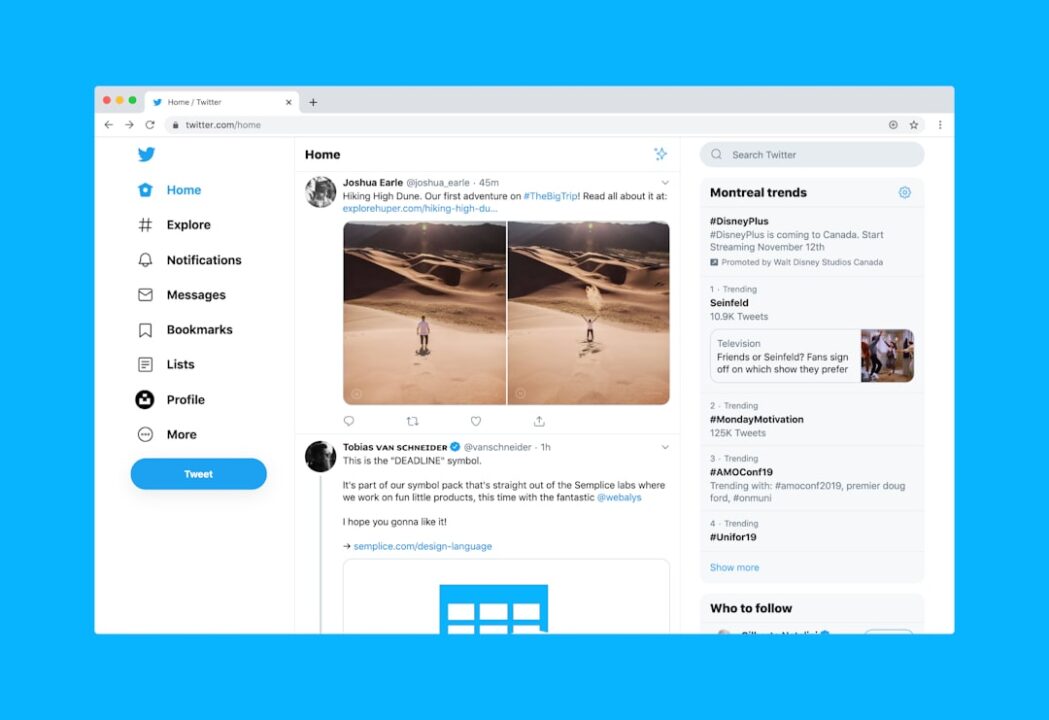|
IN BRIEF
|
Have you ever felt that irrepressible urge to snack in the evening, even after having dinner? This feeling of nighttime hunger affects many people and can sometimes seem inexplicable. However, understanding the mechanisms behind these food cravings can help to better manage them. In this article, we will explore the different reasons that can explain why hunger often manifests itself at the end of the day, in order to provide you with the keys to experiencing more peaceful evenings.
It is not uncommon to feel very hungry in the evening, even after having had a decent meal. Several factors can contribute to this state, ranging from dietary imbalances to psychological disorders such as stress. In this article, we’ll explore the different reasons why you might experience increased hunger pangs in the evening and offer solutions to alleviate it.
Unsuitable eating habits
Your eating habits throughout the day have a direct impact on your feeling of hunger in the evening. Skipping meals or not eating enough nutrients can lead to more nighttime hunger. For example, not eating breakfast or lunch could cause you to snack later in the evening. Make sure you distribute your meals and snacks in a balanced manner to maintain regular energy intake.
Eating unbalanced meals
A balanced meal should contain a combination of protein, complex carbohydrates and healthy fats. Often, meals high in simple carbohydrates and low in protein can cause blood sugar spikes followed by rapid drops, causing feelings of hunger. The food choices you make throughout the day can therefore influence your nighttime cravings.
Psychological causes
Stress, anxiety, and other emotional factors can play a key role in feeling hungry in the evening. Stress, in particular, can lead to eating more, often comfort foods high in sugar and fat. To learn more about how stress influences your eating habits, check out this article from National Geographic.
Eat your emotions
It is common to use food as a way to manage emotions. The term “emotional eating” refers to the tendency to turn to food to relieve stress, boredom, or other negative emotions. Learning to identify these behaviors and address them through alternative means can help you better manage your nighttime hunger. Here is an article from Femina which addresses this theme.
Impact of hormones
Hormonal fluctuations can also influence how hungry you feel in the evening. Hormones such as ghrelin, which stimulates appetite, and leptin, which indicates satiety, can be out of balance for a variety of reasons, including lack of sleep or premenstrual syndrome. For more details, read this article on Top Health.
The role of sleep
Lack of sleep can have a significant impact on your levels of appetite-related hormones. Studies have shown that people who sleep less than seven hours a night tend to produce more ghrelin and less leptin, which increases feelings of hunger. Ensuring good sleep can therefore help reduce nighttime cravings.
Cravings before your period
Many women experience an increase in their appetite just before their period. This is mainly due to hormonal changes, particularly low serotonin, which can affect mood and cause cravings for sugar and carbs. To better understand this aspect, see the article on Top Health.
| Factors | Explanations |
| Light meal | Consuming poorly nutritious meals can leave you feeling hungry. |
| Irregular hours | Eating at varied times disrupts appetite regulation. |
| Stress | Stress can cause emotional hunger, prompting you to eat more. |
| Hormonal imbalance | Many hormones influence the feeling of fullness and hunger. |
| Insufficient hydration | Not drinking enough water can be confused with hunger. |
| Lack of sleep | Insufficient sleep increases the production of the hunger hormone. |
| Processed foods | They may not provide lasting satiety, leading to cravings. |
- Circadian rhythm: The body has appetite peaks linked to the internal clock.
- Eating habits: Irregular meals increase hunger in the evening.
- Stress : Anxiety can cause nighttime snacking cravings.
- Ingredients : Foods high in sugar and carbohydrates create insulin spikes.
- Hydration: Dehydration can be confused with hunger.
- Physical activity: A lack of exercise can increase the desire to eat in the evening.
- Emotions: Food is often used as emotional comfort.
- Sleep : Poor sleep can disrupt satiety signals.
Routine and environment
Your environment and daily routines can also play a role in feeling hungry in the evening. Staying up late and being exposed to visual food stimuli, such as watching cooking shows or surfing the internet, can increase cravings.
Teleworking and snacking
With the popularization of teleworking, many people are closer to their kitchens and therefore more likely to snack throughout the day. This behavior can continue into the evening, when the urge to eat might be stronger. To learn more about this phenomenon, read this article on Grazia.
Solutions to better manage nighttime hunger
There are several strategies to better manage your hunger in the evening, such as adopting healthy and balanced eating habits, eating nutritious snacks, and improving stress management. Here are some tips to help you curb your nighttime cravings.
Maintain a balanced diet throughout the day
To minimize hunger in the evening, it is important to properly distribute your food intake throughout the day. Make sure you eat balanced meals that include protein, fiber, and healthy fats to stabilize your blood sugar and prevent hunger spikes.
Opt for healthy snacks
If you feel the need to eat something in the evening, choose healthy options like fruits, vegetables, nuts or yogurt. A dietitian shares her recommendations for nighttime snacking in this article from Top Health.
Exercise regularly
Regular exercise can also help regulate your appetite and improve your mood, which can reduce stress-related food cravings. A simple evening walk or yoga session can make a big difference.
Managing stress and emotions
Learning to manage stress in a healthy way can go a long way in reducing nighttime cravings. Practicing relaxation techniques like meditation, deep breathing, or journaling can help you better manage your emotions without resorting to food.
Adopt good sleep hygiene
Sleep plays a crucial role in regulating your appetite. Be sure to maintain a regular sleep routine and create an environment conducive to rest to help balance your hunger hormones.
Eating behaviors during winter
It is also interesting to note that some people feel more hungry during the winter months. This is often linked to a reduction in daylight which can affect our mood and appetite. To better understand this phenomenon, consult this article on Cosmopolitan.
Lack of natural light
Lack of light during the winter months can affect your serotonin levels and therefore your food cravings. Spending time outdoors during the day or using light therapy lamps can help compensate for this deficit.
Increase in comfort meals
With the cold, it’s common to turn to richer, comforting meals. While this is completely natural, it’s important to find a balance to avoid drastically increasing your calorie intake.
Understanding post-meal cravings
Some people feel increased hunger even after eating a large meal. This can be due to several factors such as the quality of digestion, the composition of meals or hormonal imbalances. To learn more, check out this article on Marie Claire.
Carbohydrate digestion
Meals high in carbohydrates can digest quickly, which can cause you to feel hungry shortly after eating. Opting for complex carbohydrates like whole grains can help keep you feeling full longer.
The quality of meals
The quality of the food you eat plays a crucial role in regulating your appetite. A meal rich in fiber, lean protein, and healthy fats can help you feel full longer.
Eating habits around fast food
Consuming fast food can also contribute to feelings of hunger after a meal, due to the low nutritional quality and addictive compounds of these foods. You can better understand this phenomenon by reading this article on MSN.
The effects of additives
Fast foods often contain additives and preservatives that can affect your digestion and appetite. These substances can disrupt your body’s satiety signals, causing you to feel hungry even after a meal.
Lack of essential nutrients
Fast food meals are generally low in essential nutrients, but high in empty calories. This combination can make you hungry quickly, as your body will seek out the nutrients it’s lacking.
Understanding the reasons behind your feeling of hunger in the evening can help you better manage your diet and lifestyle habits. By taking a holistic approach, taking into account your nutritional, emotional and physiological needs, you can find sustainable solutions to avoid nighttime cravings.
Frequently Asked Questions
A: Evening hunger can be caused by several factors, including improper daytime eating habits, insufficient macronutrient intake, or a disrupted sleep routine.
A: Yes, skipping breakfast can lead to increased hunger in the evening, as it can throw your metabolism out of whack and cause you to make up for missed calories later in the day.
A: It is advisable to consume foods rich in protein and fiber during the day, such as fruits, vegetables, legumes and lean proteins, to promote satiety.
A: Yes, sometimes the body can mistake thirst for hunger. Make sure to hydrate well throughout the day.
A: Absolutely. Stress can cause compulsive eating behaviors and increase your desire to snack in the evening.
A: Try eating a small, healthy snack like plain yogurt or a handful of nuts. This can give you nutrients without too many calories.





